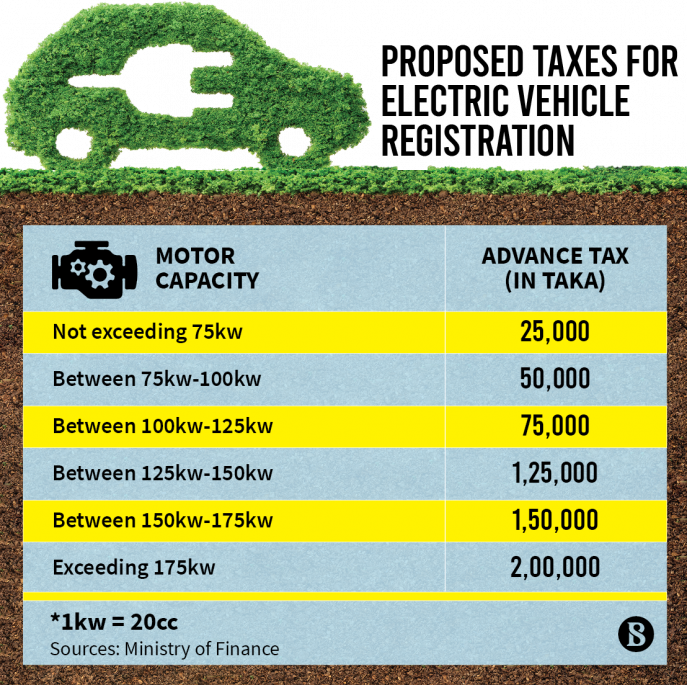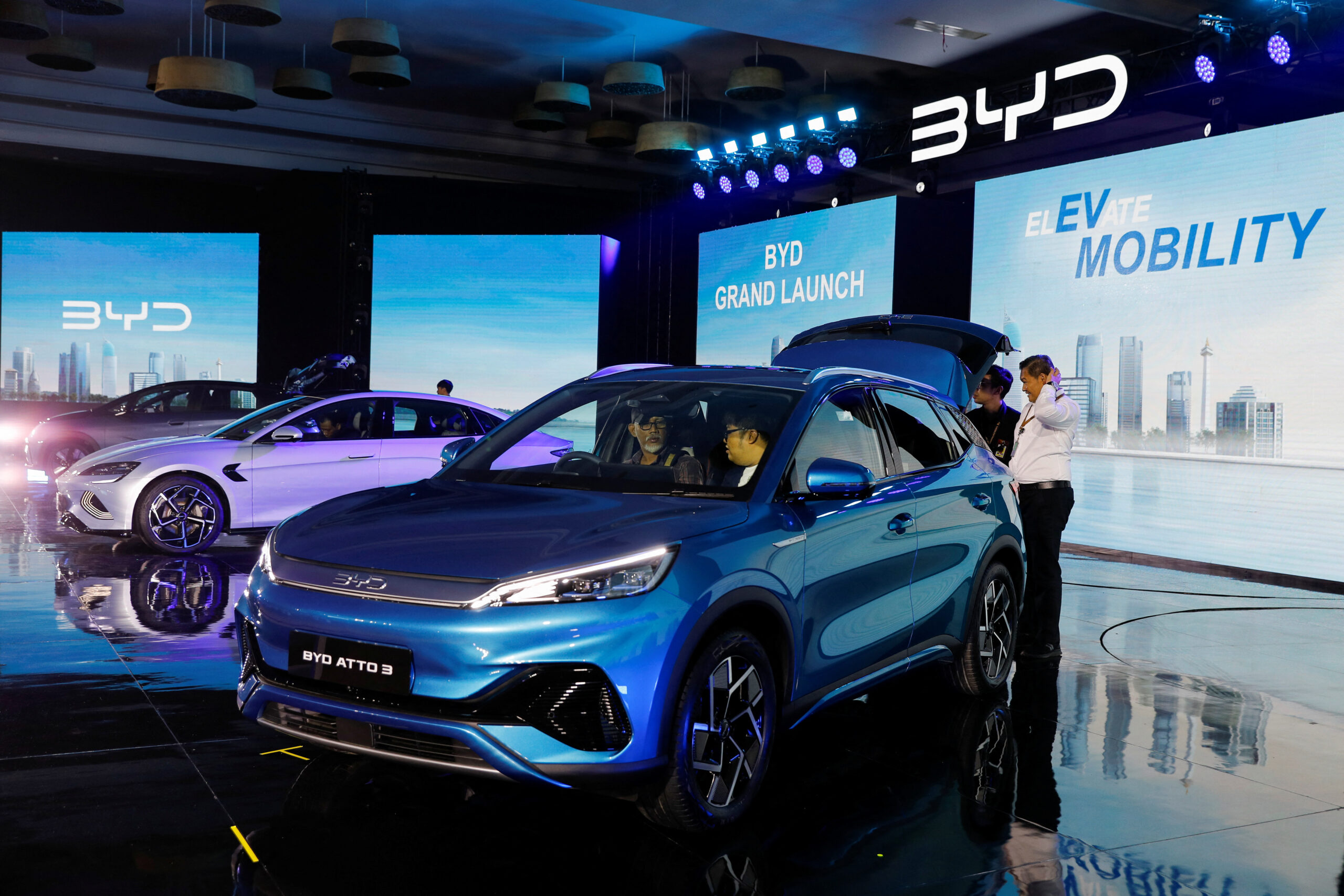Electric car import tax in Bangladesh is currently 58.53%. This tax rate includes customs duty, VAT, and other fees.
Electric car import tax in Bangla is encouraging the adoption of electric vehicles (EVs) to reduce environmental pollution and fuel dependency. The government has implemented specific tax policies for EVs to make them more accessible. Importers pay a 58. 53% tax, which covers customs duty, VAT, and other fees.
This taxation aims to balance revenue generation and promote sustainable transportation. The reduced tax compared to traditional vehicles makes EVs more appealing to consumers. As the global shift towards electric mobility gains momentum, Bangladesh is taking steps to align with this trend. The tax policy reflects the country’s commitment to fostering a greener future through innovative transport solutions.

Credit: www.scribd.com
Introduction To Electric Car Import Tax
Electric cars are becoming popular in Bangladesh. The government has introduced an import tax on these vehicles. This tax has many purposes and affects consumers in various ways. Understanding this tax is crucial for anyone interested in electric cars.
Purpose Of Import Tax
The import tax on electric cars serves several purposes:
- Revenue Generation: The government earns money through this tax.
- Environmental Protection: Encourages the use of cleaner vehicles.
- Market Regulation: Helps control the number of imported cars.
Importance For Consumers
The import tax has a significant impact on consumers:
- Cost of Ownership: Increases the overall cost of electric cars.
- Affordability: Affects the affordability for the average consumer.
- Market Availability: Influences the variety of models available in the market.
Understanding these aspects helps consumers make informed decisions. Knowing the import tax can help budget for an electric car purchase. It also highlights the government’s role in promoting cleaner vehicles.
Current Tax Rates
Understanding the current tax rates for importing electric cars in Bangladesh is crucial. These rates influence the final price consumers pay and impact the adoption of electric vehicles.
Standard Tax Rates
Bangladesh has specific tax rates for vehicle imports. The standard tax rates apply to most types of vehicles. Here’s a breakdown of the current standard import tax rates:
| Vehicle Type | Import Duty | Supplementary Duty | VAT | AIT |
|---|---|---|---|---|
| Petrol Cars | 25% | 30% | 15% | 5% |
| Diesel Cars | 25% | 30% | 15% | 5% |
| Hybrid Cars | 20% | 20% | 15% | 5% |
Variations For Electric Vehicles
Electric vehicles enjoy different tax rates to encourage their adoption. These lower rates aim to make electric cars more affordable. The table below shows the current tax rates for electric vehicle imports:
| Vehicle Type | Import Duty | Supplementary Duty | VAT | AIT |
|---|---|---|---|---|
| Electric Cars | 10% | 0% | 15% | 5% |
Electric vehicles have significantly lower import duty and supplementary duty. This reduction supports the growth of eco-friendly transportation. Lower taxes on electric vehicles make them more appealing to buyers.
In summary, the current tax rates in Bangladesh vary depending on the vehicle type. Electric vehicles benefit from lower tax rates, promoting their use. This policy helps reduce environmental impact and encourages sustainable choices.
Government Policies
The government policies in Bangladesh play a crucial role in shaping the electric car market. These policies aim to promote environmental sustainability and reduce dependence on fossil fuels. By understanding these policies, one can grasp the current landscape of electric car imports in the country.
Incentives For Electric Cars
The Bangladesh government offers several incentives to encourage electric car imports. These incentives are designed to make electric cars more affordable and appealing to consumers.
- Reduced Import Duties: The import tax on electric cars is significantly lower than on conventional vehicles.
- Tax Rebates: Buyers of electric cars are eligible for tax rebates, making the purchase more economical.
- Subsidies: The government provides subsidies to reduce the upfront cost of electric vehicles.
These incentives aim to increase electric car adoption and reduce air pollution.
Recent Policy Changes
Recent policy changes reflect the government’s commitment to promoting electric vehicles. These changes are designed to simplify the import process and make electric cars more accessible.
| Policy Change | Description |
|---|---|
| Lowered Import Tariffs | The government has lowered tariffs on electric car imports to boost sales. |
| Extended Tax Benefits | New policies extend tax benefits to both individuals and companies buying electric cars. |
| Infrastructure Development | Investment in charging infrastructure to support the growing number of electric cars. |
These policy changes aim to create a more favorable environment for electric car imports and usage.
Economic Impact
The electric car import tax in Bangladesh significantly affects the national economy. By understanding these impacts, we can better appreciate the broader implications.
Revenue Generation
Import taxes on electric cars generate substantial revenue for the government. This revenue helps fund public services and infrastructure projects.
| Year | Revenue Generated (in million BDT) |
|---|---|
| 2020 | 500 |
| 2021 | 750 |
| 2022 | 900 |
The table shows the growing revenue from electric car import taxes over the years. This trend indicates a rising interest in electric vehicles.
Effect On Local Market
The local car market in Bangladesh faces new challenges due to electric car imports. Local manufacturers need to adapt to the changing landscape.
- Increased competition
- Need for innovation
- Potential for new partnerships
These factors push local companies to innovate and improve their offerings. This ultimately benefits consumers with more choices and better technology.
Local job creation also sees a positive impact. As electric cars become more popular, related industries like charging stations and maintenance services grow.
Environmental Considerations
Electric cars are becoming popular in Bangladesh. The government has introduced import taxes on these vehicles. These taxes help to promote sustainability. The environmental impact of electric cars is a major factor.
Reducing Carbon Footprint
Electric cars produce fewer emissions than traditional vehicles. This helps reduce the overall carbon footprint. Less carbon in the air means cleaner air for everyone. People who drive electric cars contribute to a healthier environment. It’s a small step but has a big impact.
Fossil fuels are a major source of pollution. Electric cars run on batteries. They use clean energy sources. This change reduces the need for fossil fuels. In turn, this also helps to decrease air pollution.
| Traditional Cars | Electric Cars |
|---|---|
| High Emissions | Low Emissions |
| Fossil Fuel Dependent | Battery Operated |
| Contributes to Air Pollution | Reduces Air Pollution |
Promoting Sustainable Transport
Electric cars encourage sustainable transport options. They are more energy-efficient. This means they use less energy to travel the same distance.
The government’s import tax policy supports this shift. It makes electric cars more accessible. Sustainable transport leads to a greener future.
- Electric cars are quieter.
- They have fewer moving parts.
- Maintenance is easier and cheaper.
Public awareness is growing. People are making more eco-friendly choices. This trend is essential for long-term sustainability.

Credit: www.tbsnews.net
Challenges In Implementation
Implementing an electric car import tax in Bangladesh faces several challenges. These challenges hinder the smooth adoption of electric vehicles (EVs) in the country. Addressing these issues is crucial for the successful implementation of the tax.
Infrastructure Issues
The lack of proper infrastructure is a significant challenge. Bangladesh has limited charging stations for electric cars. Without enough charging points, drivers hesitate to switch to EVs.
Electric cars need reliable power sources. Bangladesh’s power grid is often unstable. This instability affects the charging of EVs, causing inconvenience to users.
Additionally, there is a lack of skilled technicians. Maintaining and repairing electric cars requires specialized knowledge. The shortage of trained professionals adds to the complexity of EV adoption.
Public Awareness
Public awareness about electric cars is low in Bangladesh. Many people do not know the benefits of EVs. They are unaware of the cost savings and environmental advantages.
Misinformation and myths about EVs are common. Some believe electric cars are slow or unreliable. These misconceptions need to be addressed through effective public education campaigns.
Furthermore, there is a lack of promotional activities. Government and private sectors need to work together to promote EVs. Public campaigns, advertisements, and incentives can help raise awareness.
Future Prospects
The future of electric cars in Bangladesh looks promising. Electric car import tax policies might soon change. This could lead to a boom in the market. Let’s explore potential policy reforms and market growth predictions.
Potential Policy Reforms
The government is considering new policies. These could include reduced import taxes. Lower taxes would make electric cars more affordable. Subsidies might also be introduced. This would encourage more people to buy electric cars.
Another possible reform is tax exemptions. Electric cars could be exempt from some taxes. This would further reduce costs. All these changes would promote cleaner transportation. They would also help reduce air pollution.
Market Growth Predictions
Experts predict rapid market growth for electric cars. The demand is expected to rise. More people are becoming aware of the benefits. Electric cars are eco-friendly. They also have lower running costs.
The number of electric car models is increasing. More choices will attract more buyers. Charging infrastructure is also expanding. This makes owning an electric car more convenient.
Let’s look at some key predictions:
| Year | Estimated Market Growth |
|---|---|
| 2023 | 15% |
| 2025 | 25% |
| 2030 | 40% |
These predictions show a bright future for electric cars in Bangladesh. With the right policies, the market will thrive.

Credit: pressxpress.org
Frequently Asked Questions
What Is The Import Duty Tax For Cars In Bangladesh?
The import duty for cars in Bangladesh ranges from 25% to 800%, depending on the car’s engine capacity and type.
What Is The Import Tax Rate In Bangladesh?
The import tax rate in Bangladesh varies from 5% to 25%, depending on the product category.
How Much Does It Cost To Import A Car To Bangladesh?
Importing a car to Bangladesh costs between $10,000 and $30,000. The price depends on car type, taxes, and duties.
Is Electric Car Legal In Bangladesh?
Yes, electric cars are legal in Bangladesh. They can be registered and driven on public roads.
Conclusion
Understanding the electric car import tax in Bangladesh is crucial for buyers and investors. Lower taxes can boost eco-friendly transportation. Stay updated on tax policies to make informed decisions. Embracing electric cars can lead to a sustainable future. Make the switch to benefit from tax incentives and environmental advantages.
